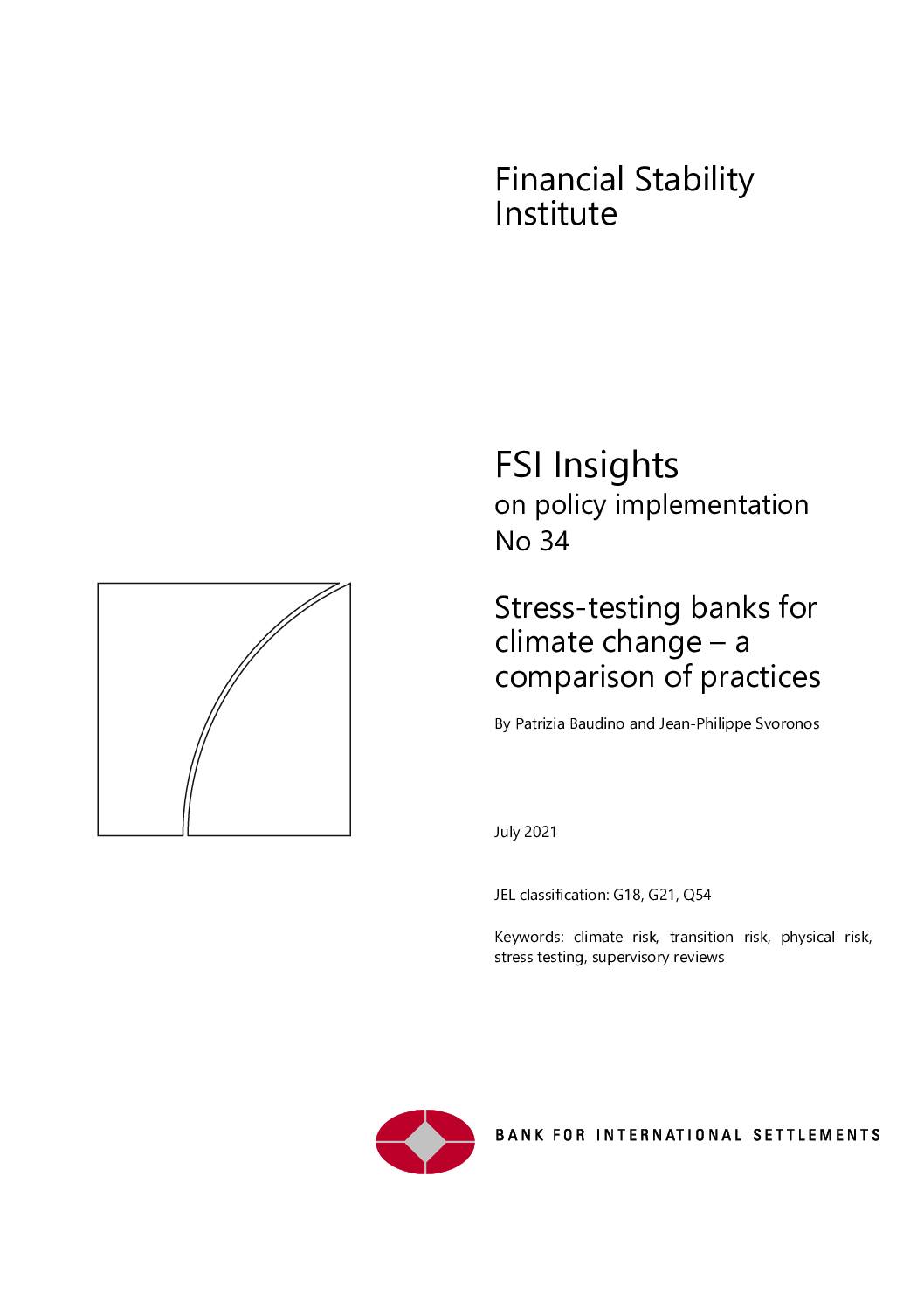While growing efforts in the international policy arena have been made to quantify and mitigate climate risk exposures faced by the financial sector, The Bank for International Settlements makes several recommendations for climate risk scenario analysis. Notably, BIS indicates that climate scenario design exercises should fully reflect both physical and transition risk. Depending on the scenario-pathway, the transition to a low carbon economy can have its own economic and financial impact. The cumulative impact and feedback effects of both physical and transition risk should be captured in scenarios.
Climate stress-testing has recently been underway in the Netherlands and France with the practice and application emerging across the Banking Union in Europe, the United Kingdom, Australia, Singapore and Canada.
As climate stress-testing includes modelling the climate patterns and variables, measuring the
impact of climate on macroeconomic variables, breaking down the overall macroeconomic impact across sectors and quantifying the combined impact on financial firms, significant challenges includes the reliability and availability and the time-horizon over which climate risk and potential impact unfolds.
Many of the pilot exercises underway are seen as a starting point for managing climate-related risks and beginning to identify and assess an increasingly important source of risk. These current and emerging practices can serve as a catalyst to further develop modelling techniques appropriately suited to capturing climate risk dynamic and collection of relevant data, according to the Bank for International Settlements.
Link to resource Download sourceShare this

Sectors: Buildings, Finance
Country / Region: Europe
Tags: Banks, carbon, citizens, climate predictions, climate risks, climatological variables, economic variables, global climate, Industry Regulators, Institutional Investors, National Regulators, risks, SMARTER, Supranational Regulators, sustainable economiesIn 5 user collections: Green Home Investment Platform – Industry Regulators , Green Home Investment Platform – National Regulators , Green Home Investment Platform – Supranational Regulators , Green Home Investment Platform – Institutional Investors , Green Home Investment Platform – Banks
Author: Financial Stability Institute Insight on Policy Implementation No 34: Stress-Testing Banks for Climate Change: A Comparison of Practices
